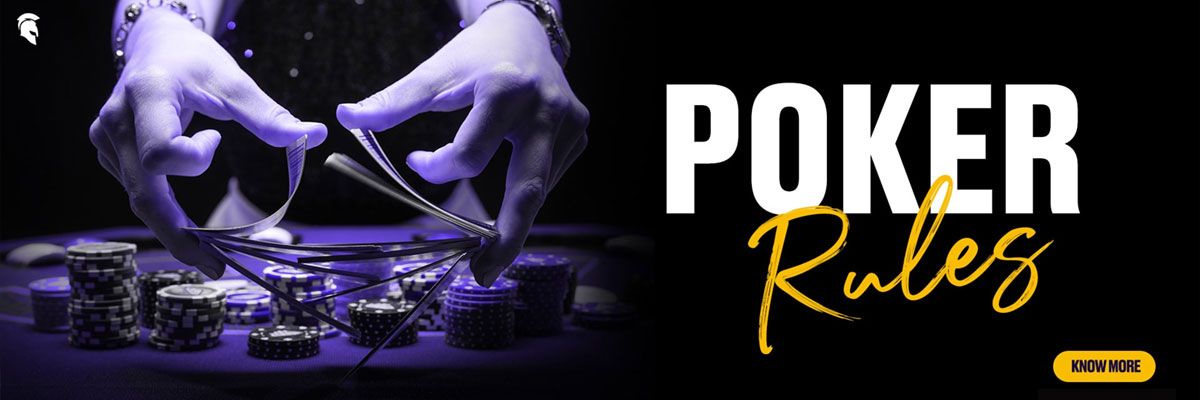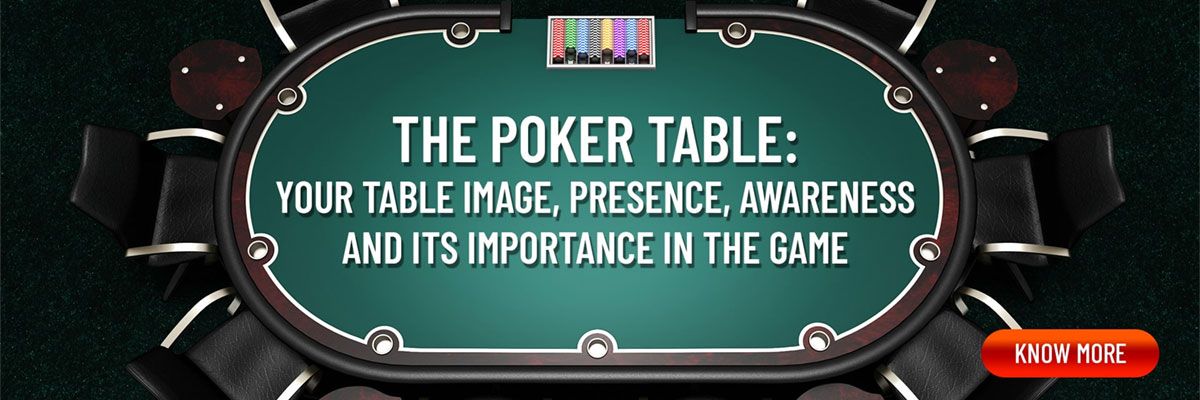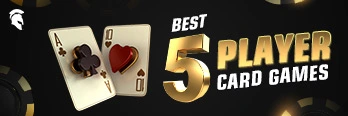Poker rules
Poker is a game of chance. A card game that requires quite a bit of skill and psychology with luck playing a significant factor as well. The goal of a poker game is simple: Make the best possible five-card poker hand using your hole card and in combination with the community cards. Here are some basic rules of poker for beginners.
- Each player is dealt two cards face down (hole cards).
- Five cards are dealt face up after the betting rounds (community cards).
- The player has to use the community cards in combination with his/her hole cards and build the best possible five-card poker hand.
One of the most basic rules of poker is the understanding of poker hands and poker actions.
Ranking of poker hands:
- Royal Flush — five cards of the same suit, ranked ace through ten.
- Straight Flush — five cards of the same suit and consecutively ranked.
- Four of a Kind — four cards of the same rank.
- Full House — three cards of the same rank and two more cards of the same rank.
- Flush — any five cards of the same suit.
- Straight — any five cards consecutively ranked.
- Three of a Kind — three cards of the same rank.
- Two Pair — two cards of the same rank and two more cards of the same rank.
- One Pair — two cards of the same rank.
- High Card — five unmatched cards. The highest ranked card is chosen.
Poker actions
Before we get into poker actions, we need to know the two types of blinds. The small blind is placed by that player who is on the dealer button's left, and the big blind is then posted by the next player to the left. The big blind is equal to the minimum bet while the small blind is normally half the big blind. During the betting round, every player is given three options starting with the player on the big blind's left.
- Call - match the amount of the big blind. Blinds are forced bets that begin the betting round.
- Check - to decline the opportunity to open the betting. You can only check when there is no bet during the current round.
- Raise - increase bets.
- Fold - throw the hand away.
Every game is defined by a set of rules that are meant to be followed by everyone. Knowing the technicalities of the game is important. With some basic rules of poker out of the way, there are some rules known as unwritten rules that make sure the game is played in an enjoyable way.
Poker etiquettes are a set of guidelines to promote good sportsmanship and a healthy atmosphere. After all, a social game like poker should always be played in a pleasant and fair manner. So let's take a look at some unwritten rules of poker that you will not find in the poker rulebook.
Slow rolling can slowly get on your opponent’s nerves
Avoid it because there is nothing worse than slow rolling. There could be only one possible explanation for a slow roll: To annoy your opponent. Slow rolling is when you have the best hand but deliberately delaying in showing it, which creates an illusion to another player that they are going to win. Nobody likes a false impression that they are going to win for it to only be taken back in the end. Slow roll and you will not be making any friends after the game. It is a matter of respect for your opponent.
Time wasting
Agreed, poker is a decision-making game, and it is not really breaking the basic rules of poker but imagine yourself on the receiving end of constant time-wasting. It is understandable to take your time when the pot gets relatively large but do not waste time unnecessarily. There is no need to feign you are thinking as well; nobody cares. And the end of the day, the more the game is slowed down, the fewer hands will be played, which ends up into fewer profits.
Stay alert to the poker action
Similar to the last point, losing concentration will only end up in delayed moves, or sometimes, you may act out of turn. Watching television, chatting with someone helps nobody. You can always do that before or after the game. During the game, only one thing matters - Winning the game and taking home the pot. Additionally, you may miss some vital information from your opponents who could lead to some poor decision-making on your end. It does not only affect others but yourself too.
Be careful when calling the clock
Calling the clock should be used sparingly. Unless absolutely necessary, do not use this option. Do not pressurise your opponent and rush their decision-making. An important sportsmanship trait is treating your opponents with respect. If things are getting out of hand and your opponent is taking way too long every turn after repeated chances, only then call the clock. Calling the clock on someone is usually frowned upon unless it is very noticeable. You should be able to see the difference between someone who needs time to make a move and someone who deliberately slows down the game.
Do not curse or use offensive words on chat
The fact that other players are far away, some players use it as an opportunity to throw some insults or trash talk, which just ruins the pleasant atmosphere of the game. In a game of poker, you don't have to make new friends, but there is no harm in being polite. Avoid trash talking because there is no way you can see the reaction of the other players. Even if it is a newcomer, do not berate or act improperly no matter what they do. Just look at it as an opportunity to win some good pots. You never know what kind of effect it can have on them. Chatting is provided in online poker to praise your opponent or to share some light humour, not to disrupt the friendly environment. It is not against the poker rules but is often termed as bad etiquette.
If you are not in the hand. Stay out of it
Whether you play offline or online, if you are not in the hand, stay out of it. You will end up distracting other players, and nobody likes a distraction when money is on the line. Do not give any information about your cards or even about the current hand. You will end up giving away information even if its unknowingly. Keep these insights to yourself, at least wait till the hand ends.
Do not be a mentor
During the game, nobody signed up to take lessons from you. Not against the poker rules but try to avoid giving any unwanted advice. Whether you are an expert of the game or a poker shark, you are on the table to win the game, not be a mentor to others. Especially if someone has just lost a big pot, the last thing they want to hear is some advice from other players. Everyone plays in the manner they want to, and if they keep making mistakes, it is even better for you.
Don't hit and run
Whether it is on road or in poker, nobody likes a hit and run. It is a very unsportsmanlike spirit. In poker, a player that "hits and runs" is someone who wins a big pot early in the game and leaves it straight away. Not against the written rules of the game but such players are despised by the poker community as many consider it to be against the spirit of the game. Everyone plays the game to win big but it is expected that you do it in a fair manner. There may be occasions where you may have to leave the game and happen to win just before that but try to not make it a habit.
Be gracious in victory
Do not celebrate overly hard; it can get very annoying. Nobody is happy after losing a big pot, and the last thing they need is someone rubbing it on their face and gloating about their win. Think about yourself in their place, someone teasing you after you lost a big pot. Not a happy sight, right? Be a gracious winner, and don't make fun of others.
Be gracious in defeat
This is where your sportsmanship is tested. Nobody likes a sore loser, and nobody is interested in hearing your excuses, especially random players. Whether you are a fish or a poker shark, you will face bad days, and you have to accept it. Complaining will not change the end result and will only make you feel worse, instead look at it as an opportunity to learn, analyse and rectify your mistake. As mentioned at the beginning of the blog, luck is a significant factor of poker, and it cannot always be on your side. Feel free to praise the opponent who won and be gracious in defeat. Buckle up and come back stronger.
Conclusion:
Unwritten rules are not official poker rules. They are not rules that can change the outcome of the game or have to abide by but you can call these rules as a set of "gentleman rules" set by the poker community to ensure healthy competition, and in general, keep everyone happy. Now that you are aware of the poker etiquettes, why not put them into use at Spartan and play some online poker games.

















